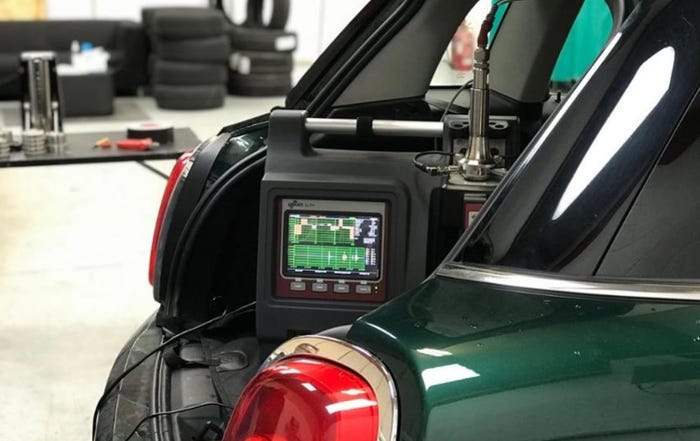What Price Software?
It was an offhand remark that apparently touched a nerve.At the Blue Ribbon panel at the recent Convergence 2006 Transportation Electronics Conference, Jeffrey Owens, president of Delphi Corp.'s Electronics & Safety unit, takes a lighthearted jab at auto makers that place inordinate emphasis on component cost.

It was an offhand remark that apparently touched a nerve.
At the Blue Ribbon panel at the recent Convergence 2006 Transportation Electronics Conference, Jeffrey Owens, president of Delphi Corp.'s Electronics & Safety unit, takes a lighthearted jab at auto makers that place inordinate emphasis on component cost.
“Software is generally considered free,” Owens says with a grin, drawing chuckles from the audience and some fellow auto suppliers on the panel.
One of the panelists was Hans-Georg Frischkorn, executive director-global electrical systems controls and software for General Motors Corp., Delphi's largest customer. As part of its bankruptcy case, Delphi has complained that thousands of its contracts with GM are unprofitable.
Later in the panel session, responding to the comment, Frischkorn suggests GM could be paying too much for automotive software, and that GM would begin “true-cost analysis” to determine precisely how much GM should be paying for software.
Afterward, Frischkorn tells Ward's there may be some instances when “we are paying too little,” he says. “We don't really understand the cost of software.”
True cost analysis will entail a series of metrics that will take into account manufacturing, quality control, engineering and the ability to reuse software.
“The first step is to establish a good database on software. We lack data in the industry on that,” Frischkorn says.
Owens tells Ward's he doubts GM's true-cost analysis will result in massive software price cuts. Actually, he's hoping the study will prove Delphi deserves to be paid more.
“I don't think we'll have a negative impact from that at all,” he says. “I think we could actually go the other way. I think we're undervalued in some portions of our software development.”
Owens says Delphi's exposure to total cost analysis in other component sectors “has been very positive.”
Suppliers such as Delphi are responsible for providing vast amounts of electronic functionality in vehicles today and deserve to be duly compensated, he says.
“It's becoming such a huge component of our delivered product now and such an invisible one that, in the end, the consumer doesn't see that,” he says. “The consumer doesn't understand it, and, frankly, most of the car companies' senior management doesn't understand it, either.��”
Owens says the average vehicle in North America today has about 22 electronic controllers, compared with about 15 globally.
Read more about:
2006About the Author
You May Also Like





